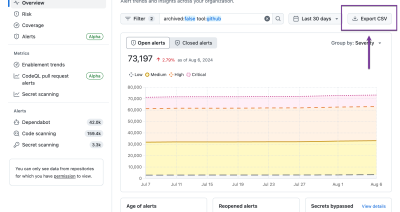
Accessibility improvements for security overview
New accessibility enhancements to the security overview data visuals make it easier and more inclusive for everyone to interact with and understand code security insights. What’s new? Improved visual accessibility:…



